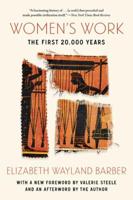Publisher's Synopsis
In the Fires of Hope: Trinidad & Tobago at 50 is the first in a 2-volume series, which is the outcome of conference papers, lectures and special presentations held at The University of the West Indies, St Augustine campus to celebrate Trinidad and Tobago’s 50th anniversary of independence.
The centrepiece of this first volume are the “Conversations” in which former Prime Minister ANR Robinson and Basdeo Panday are engaged by an audience in speaking freely about their respective tenures in office during critical periods of Trinidad and Tobago’s recent history, as well as their vision for the country going into the future. Together, these two lively conversations make up the first part of the volume.
Part Two begins with recommendations for constitutional change in Trinidad and Tobago but is comprised predominantly of papers on the economy, with a special focus on the energy sector. In varying ways, the authors depict the influence of this sector as both a blessing and a curse – on the one hand it accounts for the bulk of the country’s exports, foreign exchange and GDP while, on the other, it is an impediment to diversification and the potential for environmental degradation. At the same time, they offer recommendations for policy changes that can reap positive social and economic benefits for the country while making Trinidad and Tobago a model nation for energy-based sustainable development in the 21st century.
Tobago comes in for special attention. Its future development is presented as an opportunity to implement the kinds of policy interventions to avoid some of the errors of the past, in particular, the variant called “Dutch Disease” suffered to some extent by Trinidad and Tobago.
Sociocultural issues are also covered. The urban district of Woodbrook, home to many who helped to shape the development of modern Trinidad, is presented in a fascinating case study as the site of an emergent “Trinidadian” nationalism, which is probably representative of the country as a whole.
Together, the presentations in this volume make a significant addition to the body of literature that illuminates Trinidad and Tobago society’s understanding of itself and underscores the UWI’s commitment to national development.










